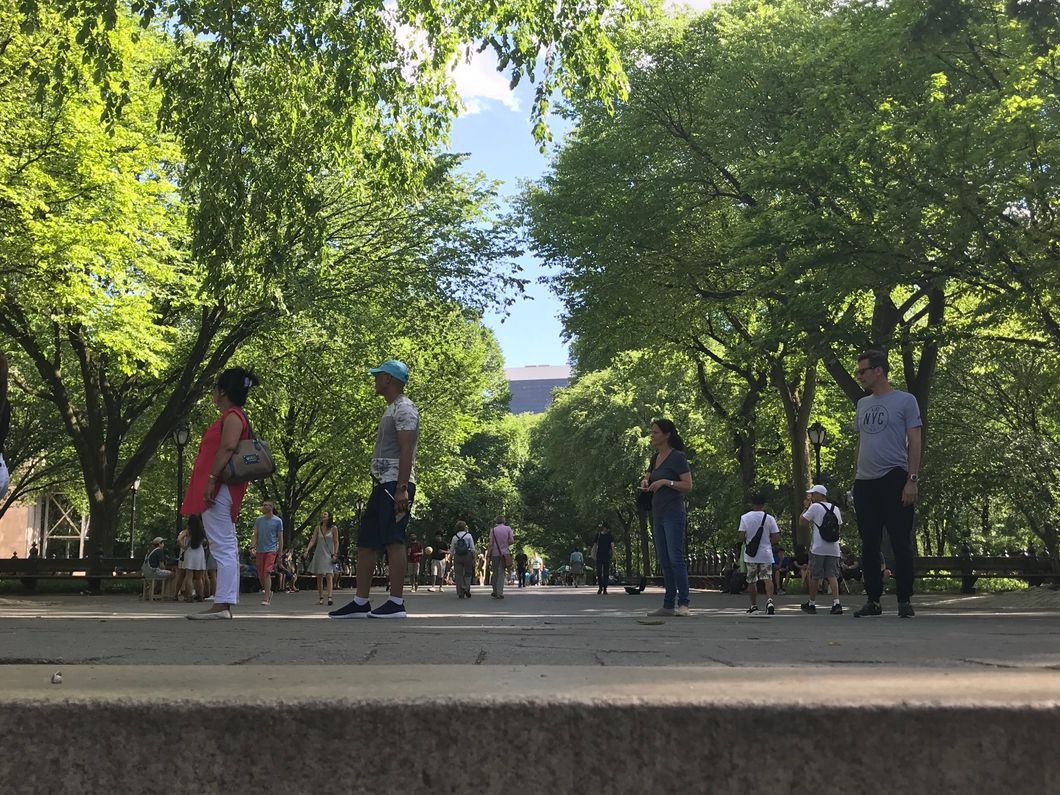"...the course of our lives can be profoundly changed by folks who sometimes cannot stay. The temporary nature of some relationships in our lives does not diminish their power and in fact sometimes enlarges them." - James Mangold
It is an unfortunate inevitability in life that people will come and go. Some will seem to have no reason. Some will move on to different things, new jobs, new towns, new people. One day, all of us will die. And some leave because of our own mistakes, the flaws in our character becoming too much for them to stay.
It was the latter reason that gnawed at me a year and a half ago. When you drive away someone that you truly love because of errors on your own part—things that could have been prevented—moving forward can be a process. Oftentimes, this process involves self-reflection, and we find things—as I did—that we had ignored in our character, deficits for which we had not accounted but that were there all along.
I found it to be a painful process, because the person to whom I was most prepared to share my struggles with was the person I had alienated. And I couldn't blame that person for being gone; No, this was a situation of my doing, and the fault was all mine.
The process is always ongoing—all of us are always changing, and it pays to be honest with ourselves throughout that process. But the most difficult thing, in my experience, was making peace with a situation in which there would be no reconciliation, even with forgiveness.
I have been blessed in life to have the unconditional love of my parents, and from them I learned that no matter how often I messed up, even if there were consequences, they would always be there. I am also blessed that I have come to know God—even though I am utterly perplexed by Him, I know that His grace is there, and I am never too far away to be forgiven.
So when, for the first time, mistakes I made pushed someone I truly loved away permanently, I struggled significantly. At first, I convinced myself that being sorry enough would help things return to the way they were. Eventually, when I saw that wouldn't be the case, I began to struggle with philosophical questions of forgiveness, wondering whether or not I deserved to be happy if I had hurt someone I loved and they still didn't want to be in my life. I started to see reconciliation as the only thing that would help me move forward.
I was wrong.
I had the answer to moving forward all along.
The key was to determine, in my heart, that no forgiveness and no reconciliation can supersede that which God gives. In my regret and sorrow, I elevated the person I loved and wronged to a pedestal that wasn't fair to them, a pedestal that only God should occupy. As I sat waiting for their forgiveness, I missed the fact that God, to whom I am responsible first and against whom I had sinned, had already forgiven me.
Of course, many people, including the person I loved, told me that God had forgiven me, but I struggled to forgive myself. Until, that is, I realized what I was waiting for. I had to look into my past, look into the fact that I was used to unconditional love, to truly accept and appreciate it from the only being that can give love that is truly without conditions.
Self-forgiveness is a process—I imagine that even the prodigal son might have had self-doubts after coming home. Sometimes we have to remind ourselves every day of God's love, of His forgiveness, of His presence. But without that self-forgiveness, we are almost stuck waiting for permission—from the other, from ourselves—permission that won't come unless we let it.
I say all of this not to mitigate the truth of the hurt that often exists in broken relationships, nor to mitigate the strength of those who choose to leave when their trust has been broken. I don't blame the person I loved for a second for moving on with their life; sometimes all we can do is pray for the people we care about that have moved forward, and I do. I believe they have the ability to do great things, and I hope that they find all that I failed to give. I learned so much from that person about life, and they gave me some incredible times, and I am both forever grateful and forever in regret that I broke their trust.
There is one more piece to self-forgiveness, perhaps the most important—doing the work to improve ourselves. Change doesn't often happen overnight, of course, and we have to be prepared to stumble along the way. But forgiveness is predicated on a desire to fix that which caused us to err. This is also a process, and it's often a difficult one—it takes a lot of self-awareness.
But it's worth it. And self-forgiveness is worth it.
We don't ever have to condone our mistakes, and the consequences of mistakes never fully disappear. But we have a choice to make every day. Is God's forgiveness good enough for us to accept? Or are we content to forever wallow in the past? Much as I sometimes wanted to choose the latter, I know that God loves to use people who come to Him knowing they are wrong but accepting what He says about them, that they have been made white as snow by the blood of Christ.






















